On 30 March 1814 Russian troops entered Paris. The Victory Day!
THE WAR OF 1812-1814
"European crusaders"- "the Roman Caesars" about 1600
have not seized the whole of Russia, but only the trade route from the
Baltic Sea to Astrakhan with access to the Caspian Sea and on to Iran
and India. This part of Russia captured by the puppets of Europe in
history is called Muscovy. Muscovy later has expanded and in addition to
access to the Caspian Sea gained access to the Black Sea near Mariupol
on the Azov Sea.
The Western border of Muscovy shown on the map is represented in the figure by the blue line.
The Western border of Muscovy shown on the map is represented in the figure by the blue line.
The Eastern border of Muscovy is shown in the
pictures with a red line. This is the line of military fortifications,
which have survived today. This is the Eastern bank of the Volga river.
The fortifications represent a typical European fortress and the walls of the Bastion type. The line of fortifications now known as "Zavolzhsky
historical shaft", stretches for 2.5 thousand kilometers from Astrakhan
to the North, with bends to the East.
The builders of all those structures were the
Germans, the settlement of which remained around Kharkov and Mariupol,
as well as in the district of Saratov, where they are known as the Volga
Germans.
European Roman Caesars
introduced "serfdom” in Muscovy, by analogy with the slavery of the
Roman Empire. But in the occupied part of Russia cruelty was impossible,
because the population just killed the cruel ruler and burned his
estate, then went to Tambov, to the Don, to the Volga.
Russia
continuously attacked the trade route of the invaders, the
communications were interrupted again and again. The Cossacks of
Zaporozhye and the Urals actively stepped out against the occupation
authorities . The troops from Siberia also participated. The most
well-known names are: Pugachev, Stepan Razin, Bulavin, and many others.
In
modern history they are called robbers, but it is not correct. For
example, Pugachev everywhere was met by the local authorities as the
Russian Tsar. He led the attack from Siberia and the Urals from the
East.
Catherine the 2d has “pacified”
the West and the East of Russia – with the Ukraine and the Urals, with
Siberia. "European crusaders", the representatives of the "Roman
Caesars," have expanded their territory of control. Catherine the 2d
made peace with the West and the East of Russia – the unification of
Russia has occurred under the single management in Moscow. Catherine the
2d received the title of Catherine of All of Russia. At the same time, a
new force of patriots joined the control system of Russia and seized
power in Moscow.
Alexander the Ist is
the first Russian Tsar in Moscow, after 200 years of rule there by
henchmen of Europe. Alexander the Ist strongly lustrated all who served
the old regime, including the famous Fyodor Ushakov. Nobility and
merchants were obliged to prove their loyalty to the Russian authorities
and to actively help the Russian army. The Tsar did not compensate
anything to them. It was a payoff for their past cooperation with the
enemies of Russia.
Napoleon came through
the Baltic States, with a plan to recapture the Moscow trade route
from the Baltic Sea to Astrakhan with access to Iran and India. Napoleon
retreated from Moscow strictly due West to Paris.
In
1812 the Russians deliberately burned Moscow. The thesis was this: "To
win, we need to burn Moscow!" During the advance of Napoleon onto
Moscow, the patriots went into the army to defend Moscow and evacuated
their families from Moscow. In Moscow stayed the entire liberal elite of
the West. Those were the supporters of the old regime of Europe in
Moscow. They were preparing to meet Napoleon with flowers, to greet him.
Moscow was burned down together with Napoleon's army and those rats,
traitors of Russia.
On March 30, 1814,
Russian troops and Russia's allies entered Paris. The power of "Roman
Caesar" was abolished throughout Europe. Russia’s allies signed the
Holy Alliance of 1815 that they will always together confront similar
threats in Europe.
The Russians didn’t
kill Germans, whose settlements were in the Volga region and in Kharkov,
Mariupol and left them to live with them. The Germans, too, stepped out
together with the Russians against Napoleon. Later Germany also signed
the Holy Alliance of 1815 with Russia.
Tsar Alexander the Ist removed the former elite from power in European countries.
"The
power of Alexander the Ist was great. He led the movement for peace,
majestically ruled the process of the Congress and presided over the
meetings of the monarchs. He was granted the ability to see how people,
not inferior to the greatness of Caesar, paled in his presence"
(revolutionary Louis Blanc in his "History of the Decade").
On the occasion of the holiday, Russia! On the occasion of the Holiday, Europe!
Translated by Ben Vladyko
Приложение к статье, издания 19 века:
История войны 1812 года. ч 1. 307 Мб http://clck.ru/d/Ycb8byHC1A2-V
История войны 1812 года. ч 2. 287 Мб http://clck.ru/d/utSQOAMZ1A2-p
История войны 1812 года. ч 3. 28,3 Мб http://clck.ru/d/76NE0Of81A20D
История войны 1812 года. ч 4. 214 Мб http://clck.ru/d/jbUjKDI11A1mZ

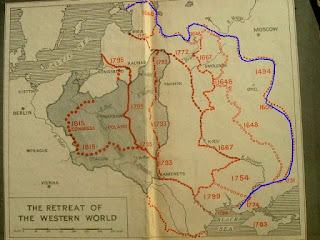
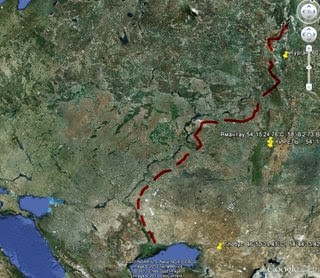
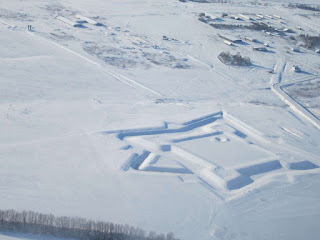
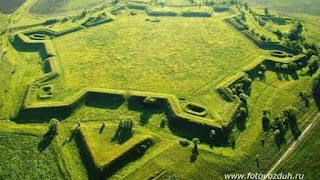
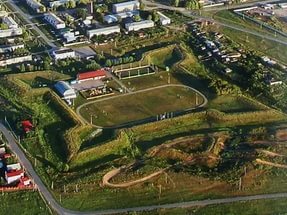

Комментариев нет:
Отправить комментарий